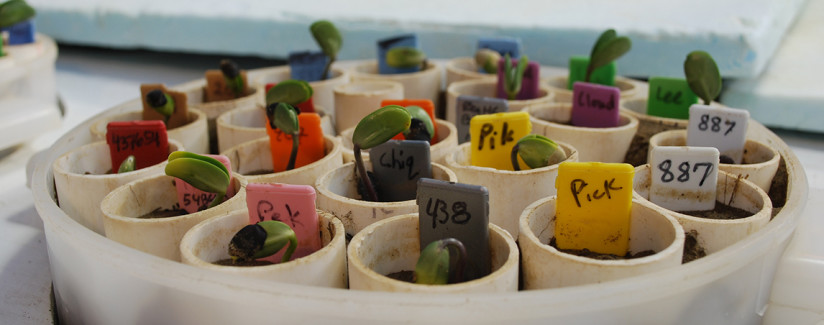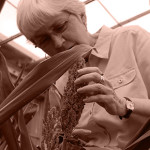
“When a company funds research, the results are biased.”
We oftentimes get questions about the funding source of research cited, or whether the researchers within Universities are “paid for” by private companies. Here, Peggy Lemaux, PhD, from the University of California at Berkeley, weighs in on how university scientists receive funding and what that means for the results.

Peggy Lemaux, PhD says:
As a public sector scientist, I have no obligation to speak either for or against the private sector or their efforts. I analyze available scientific evidence and come to my own conclusions.
To receive government funding, academic scientists submit proposals and are judged by peer-review for their science – not for either validating or negating, for example, the dangers or benefits of GMOs. Only the best of the proposals (less than 10%) are funded to do the research outlined in the proposal. There is only pressure to produce results that will be useful to the community for which the research is relevant, and that address the goals outlined in the proposal.
Academic research scientists are driven to arrive at scientific truths. This means that we don’t receive any kudos or funds for either validating or negating the issue at hand. I am only aware of one USDA program specifically aimed at examining the risks and benefits of GE crops, and the end results are not judged by which side of the fence the results end up. To bring this argument regarding academic scientists to the end point that “big business likes the concepts that they can develop a product which they can profit from” simply makes no sense in the academic world in which I and my other scientific colleagues live.
Throughout my 20 years at UC Berkeley, I have struggled to obtain funding for my outreach efforts. I have never taken money from private corporations for those efforts, and instead, receive funds from Cooperative Extension, the American Society of Plant Biologists, the National Science Foundation, and the United States Department of Agriculture’s Coordinated Agriculture Programs.
As a public sector scientist, I have no obligation to speak either for or against the private sector or their efforts. I analyze available scientific evidence and come to my own conclusions.
Image: “Soybean Research Test Plants” by United Soybean Board is licensed under CC BY 2.0.


























